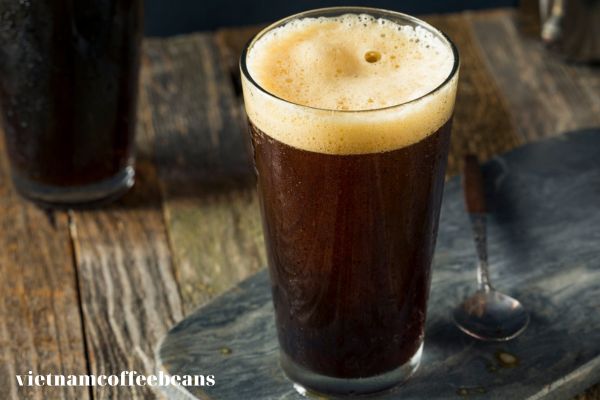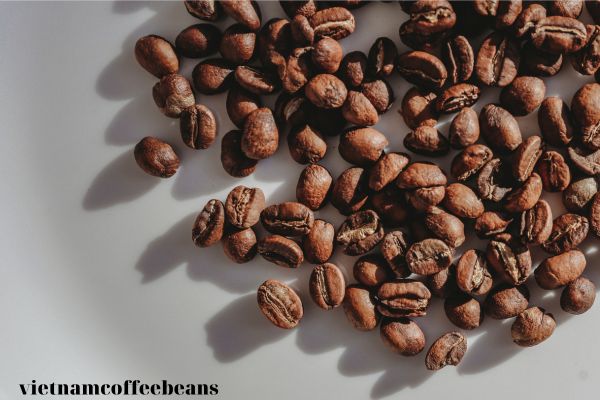As a coffee lover, I know how important it is to choose the right type of coffee beans for that perfect cup of joe. With so many options available on the market, selecting the right one can be overwhelming.
From light roast to dark roast and from smooth to bold flavors, each type of coffee bean has its unique characteristics that affect your overall coffee experience.
In this article, I will guide you through understanding different types of coffee beans and their flavor profiles. I’ll also provide tips on how to select the perfect coffee bean based on your preferences and how to store and brew them for optimal flavor.
So grab a cup of your favorite brew and let’s dive into the world of selecting the right type of coffee beans!

Understanding the Different Type of Coffee Beans
Now, you’re probably wondering what the deal is with all these different kinds of coffee beans. Well, let me tell ya, there’s a whole world of flavors out there just waiting for you to explore!
The two most common types are Arabica and Robusta. Arabica beans are generally considered higher quality and have a more complex flavor profile. They also tend to have less caffeine than Robusta beans but can be more expensive due to their finicky growing conditions.
Robusta beans, on the other hand, are hardier and easier to grow than Arabica beans. They have a stronger taste that some people describe as earthy or nutty. Robusta also has about twice as much caffeine as Arabica, making it popular among those who need an extra boost in the morning.
Another consideration when selecting coffee beans is whether you want single origin or blends. Single origin means that the coffee comes from one specific region or farm, while blends combine different types of beans from multiple locations.
Single origin coffees can be more unique in flavor since they reflect the terroir (climate, soil composition) of one particular area. Blends offer consistency and balance since they combine several types of coffee to create a certain taste profile.
Ultimately, which type you choose depends on your personal preference and taste buds!
Light Roast vs. Dark Roast: Which One is Right for You?
Deciding between a light or dark roast can be a difficult choice when it comes to your morning cup of joe. It all boils down to personal preference, but there are some key differences between the two types of roasts that you should consider.

Light roasts tend to have higher acidity levels and a milder flavor, while dark roasts have lower acidity and a bold, smoky taste. The different flavors in light and dark roast coffee beans come from the varying roasting techniques used by coffee makers.
Light roasts are roasted for less time at lower temperatures, which preserves more of the bean’s natural flavors. This results in a tangy, fruity taste that is often described as ‘bright’ or ‘crisp.’
Dark roasts, on the other hand, are roasted longer at higher temperatures until they reach their characteristic deep brown color. This process caramelizes the sugars in the beans and creates rich notes of chocolate and nuts.
So how do you decide which one is right for you? If you prefer brighter flavors with a little kick of acidity, try a light roast. They’re also ideal if you want to taste the natural nuances of different coffee varietals from around the world. On the other hand, if you’re looking for something bolder with smoky undertones and low acidity levels, go for a dark roast.
Ultimately though, it all comes down to what tastes best to you – so why not try both?
Exploring Flavor Profiles: Smooth vs. Bold
Exploring the contrasting flavor profiles of smooth and bold can add a new dimension to your coffee experience. When selecting the right type of coffee, it’s important to consider what kind of taste you prefer.

Smooth coffee is often described as having a mellow and easy-to-drink flavor profile, while bold coffee has a stronger taste that packs more punch. Here are five key differences between smooth and bold coffee that will help you decide which one is right for you:
- Smooth coffee tends to have lower acidity levels than bold coffee, making it easier on the stomach.
- Bold coffees often have earthy or smoky undertones, while smoother coffees may have hints of chocolate or nutty flavors.
- The roast level can affect the flavor profile: light roasts tend to be smoother, while dark roasts are bolder.
- If you like your coffee with milk or creamer, a smoother blend may be preferable as it won’t overpower the added flavors.
- Those who prefer their coffee black may enjoy a bolder brew as it stands out more without any additional ingredients.
Ultimately, choosing between smooth and bold comes down to personal preference. Experimenting with different blends can help you discover what kind of taste works best for you.
Incorporating both smooth and bold coffees into your routine can provide variety in your daily cup. Whether you’re looking for something easygoing or something with more kick, there’s a perfect cup out there waiting for you.
Take time to explore different beans and experiment with various brewing methods until you find the perfect balance that suits your taste buds.
Tips for Selecting the Perfect Coffee Bean
If you’re a coffee lover, you’ll want to know how to choose the perfect bean that will satisfy your taste buds and give you the ultimate coffee experience.
One important factor to consider is the roasting method used for the beans. Roasting can affect the flavor profile of your coffee, so it’s essential to know which roast level suits your preference. For instance, light roast beans have a more delicate flavor while dark roast beans have a bolder taste.
Aside from roasting methods, another crucial aspect to consider when selecting coffee beans is their origin. Different regions produce different flavors and aromas due to differences in climate, soil type, altitude, and other factors.
Single-origin coffees are gaining popularity because they offer distinct flavors unique only to their place of origin. Some popular origins include Ethiopia, Colombia, Brazil, Guatemala and Costa Rica.
When going for a perfect cup of coffee at home or in cafes, don’t forget to look for freshly roasted beans as well. Ideally, look for ones that were roasted within two weeks before purchasing as they tend to lose flavor over time after roasting.
Finally, try experimenting with different brewing methods such as French press or pour-over techniques that highlight various notes of your chosen bean variety. With these tips in mind and some experimentation under your belt, you’ll be enjoying the perfect cup of joe in no time!
How to Store and Brew Your Coffee Beans for Optimal Flavor
To fully enjoy the rich flavors of your coffee, it’s important to know how to properly store and brew your beans for optimal taste. Here are some tips on how to do just that:
- Storage Methods: Coffee beans need to be stored in an airtight container away from light, heat, and moisture. I prefer using glass jars with tight lids or resealable bags made specifically for storing coffee.
- Brewing Techniques: The brewing method you use can also affect the flavor of your coffee. For example, French press coffee tends to have a fuller body than drip coffee because it allows more oils and sediment to remain in the final product.
- Grind Size: The size of the grind is another factor that can greatly impact the flavor of your coffee. A finer grind is ideal for espresso machines while coarser grinds work better for pour-over methods.
- Water Temperature: The temperature of the water used during brewing also plays a role in determining the taste of your coffee. Ideally, water should be heated between 195-205°F (90-96°C) for optimal extraction.
By following these tips, you’ll be able to brew a cup of coffee that truly showcases its unique flavors and aromas – whether you prefer a bold dark roast or something lighter and fruitier!
Remember that experimentation is key when it comes to finding what works best for you – so don’t be afraid to try out different brewing techniques or storage methods until you find one that suits your palate perfectly!
Frequently Asked Questions
Conclusion
In conclusion, selecting the right type of coffee bean is crucial to enjoying a satisfying cup of coffee. By understanding the different types of coffee beans available and their varying flavor profiles, you can make an informed decision when choosing your next bag of beans.
Whether you prefer a light or dark roast, smooth or bold flavors, there’s a perfect coffee bean out there for everyone. Remember to store your beans properly and brew them in a way that maximizes their flavor potential.
With these tips in mind, you’ll be well on your way to experiencing the full range of deliciousness that coffee has to offer. So go ahead and explore – your taste buds will thank you!






